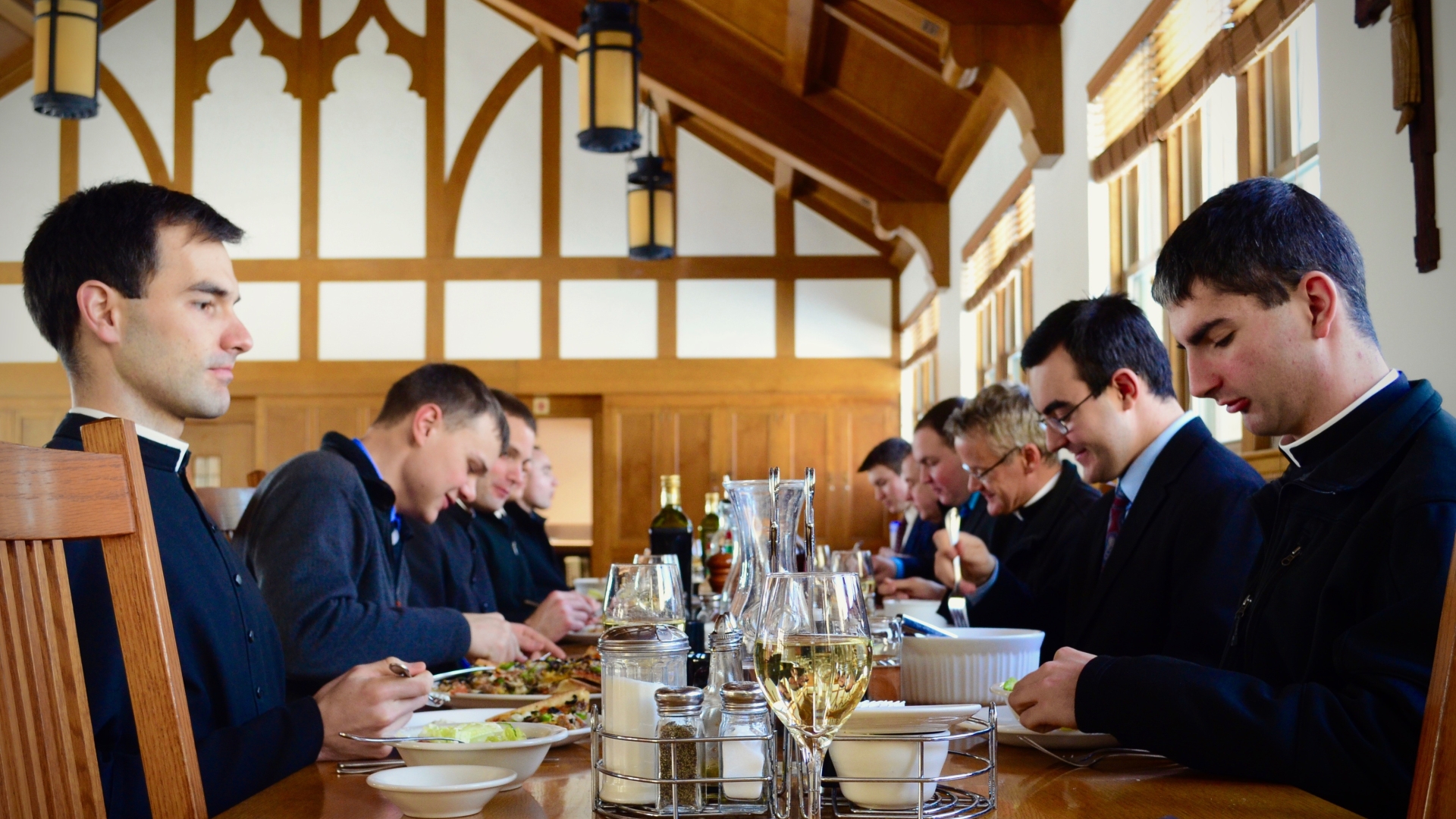Community Life

THE LIFE IN COMMUNITY IS ESSENTIAL IN THE LIFE OF A BROTHER
No one can imagine a Brother of the SSPX who does not live a life in common. It is just impossible for him to live in any other way.
What is community life?
Community life or life in common, is none other than family life. In practice, it means to live with other members under a superior, inside the same building, following a common rule and schedule. Priests and brothers in a community rise together, pray together, eat together and work together. During the day, outside of meals and recreation, silence is kept, and an ever stricter Grand Silence is kept at night. The religious life is necessarily a community life, even for those who are not cloistered.
What is its purpose?
According to Archbishop Lefebvre, our founder, the life in common is a means of maintaining priests and religious of a priory “within a true apostolate by a happy balance between the spiritual apostolate and the exterior apostolate.” Recognizing that without a solid and constant prayer life an apostle “is soon ready to give up everything.” The Archbishop precribed community life as a reliable way to ensure this life of prayer, since it provides silence, stipulates regular hours of common and private prayer, and encourages a holy fraternity. In addition, the core virtues of the exterior apostolate - fraternal charity, patience, prudence and generosity - have their place in practically every aspect of life in common.
The Life in Common is Essential to a Brother’s Vows
The religious, consecrated to God by the three vows, has the glory of God as his ultimate purpose: his whole life is a prayer. The life in common and the three religious vows work together perfectly to help him achieve this end.
By the vow of poverty, the Brother renounces all personal rights over property, outside the allowances of his superior. This frees the Brother from many burdens and worries, which leaves his mind in peace and more free for prayer.
The life in common also protects chastity effectively. Not only is the priory free from the world’s snares; it also provides positive helps: the constant company of other community members, and a daily schedule which keeps the soul occupied in prayer and good works.
Without self-sacrifice and generosity, the life in common cannot thrive. The brother already practices the spirit of obedience by following the daily schedule, but beyond this he does so by performing “any task requested by the superior.” Cleaning, cooking, secretarial work, building maintenance, and running the sacristy can all be something the brother touches.
Conclusion
Certainly one cannot imagine a brother who lives isolated from any community; his life is one of voluntary submission and dependence upon God, Who acts through the brother’s human superior. If it is true that the brother cannot live without his community, let it be said also that a community is blessed to have brothers under its roof. Theirs is the duty to maintain the zeal of priests and the fervor of the faithful, by their prayers and by demonstrating “their deeply religious spirit.” It was with this in mind that Archbishop Lefebvre said: “Let them be like the guardian angels of our communities.”